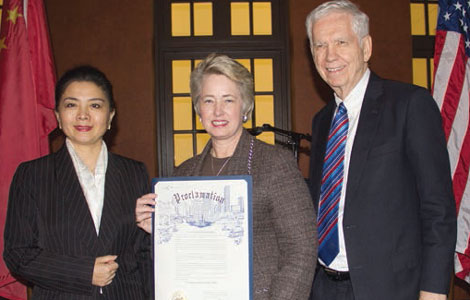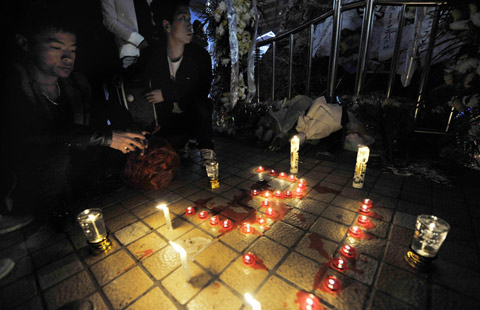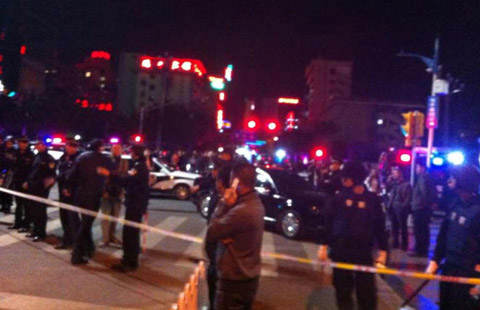Manhunt after terror attack
Updated: 2014-03-03 08:56
By Guo Anfei in Kunming Cui Jia, Hu Yongqi and He Na in Beijing (China Daily)
|
||||||||
He also urged the upgrading of China's anti-terrorism legislation to allow the government to mobilize more resources to prevent attacks.
Bo Xiao, director of the legislative affairs commission of the Xinjiang Regional People's Congress Standing Committee, said the Xinjiang government is considering anti-terrorism legislation. So far, the NPC, the country's top legislative body, has not added a nationwide anti-terrorism law to its work plan.
In 1997, Chinese criminal law was amended to include organizing, leading or joining terrorist cells after "organized terrorist crimes began to surface in some parts of China", according to Liu Renwen, a researcher in criminal law at the Chinese Academy of Social Sciences. People convicted of these offenses face sentences of 10 years to life imprisonment.
On Oct 29, 2011, the NPC's Standing Committee passed the Decision on Issues Related to Strengthening Anti-Terrorism Work, which clarified the definitions of terrorist activities, organizations and terrorists. It also included a list of suspected terrorist organizations and their members.
Liu said, "China has been considering drafting a comprehensive anti-terrorism law since the September 11 attacks in the United States in 2001, but it was difficult to reach a consensus on certain issues. The 'decision' was the result of that."
Xue Dan, Li Yingqing and Yang Wanli in Kunming, Dong Fangyu, Yang Yang, Zhang Lei and Zhang Yan in Beijing, and Gao Bo in Urumqi contributed to this story.

 Rio drops protests for Carnival
Rio drops protests for Carnival
 Houston-China bonds deepen with new group
Houston-China bonds deepen with new group
 Citizens mourn victims of Kunming terror attack
Citizens mourn victims of Kunming terror attack
 Putin justifies potential military move in Ukraine
Putin justifies potential military move in Ukraine
 Photos: Kunming rail station violence
Photos: Kunming rail station violence
 Successful businessman gives back to the community
Successful businessman gives back to the community
 Tea with heart
Tea with heart
 Wanting Qu: Chinese-Canadian singer-songwriter launches tour
Wanting Qu: Chinese-Canadian singer-songwriter launches tour
Most Viewed
Editor's Picks

|

|

|

|

|

|
Today's Top News
China to severely punish terrorist attackers
Ukraine mobilizes after Putin's move
Travel the world via the Times Show
China: no one is above the law
China urges solution in Ukraine
Beijing vows tough stance on smog
28 dead in Kunming rail station violence
China rejects US GM corn shipments
US Weekly

|

|






